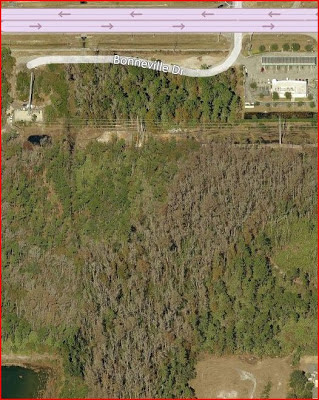On Tuesday, The Supreme Court of the United States will hear a case regarding property rights centering on government control over an owners right to maximize the productivity or utility of the property. Of course, the founding fathers regarded ownership of private property as the foundation of freedom and prosperity.
FOX News Shannon Bream, a Tallahassee native who earned Juris Doctorate with honors from The Florida State University College of Law, has a report.
The Pacific Legal Foundation, the oldest and most successful public interest legal organization that fights for limited government, property rights, individual rights and a balanced approach to environmental protection, will be in front of the Supreme Court working with the Koontz family. Here is more regarding the public sector shakedown that has handicapped the ability of the Koontz family to maximize return on and of the vacant parcel.
The Hoover Institution has weighed in, recognizing the case is central to property rights, something John Adams found integral to freedom. In fact, most are unaware that before becoming the father of our country, George Washington was a surveyor and mapper.
The Orlando Sentinel had a front page story on the case, as interestingly enough, the property in question is about twenty minutes away, right here in Orange County, Florida just east of lovely downtown Orlando. Please see the maps below of the parcel.
Koontz proposed to develop 3.7 acres closest to Highway 50, back to and including the power line easement. In order to develop his property, he sought a management and storage of surface waters permit to dredge three and one quarter acres of wetlands. A staffer from St. Johns agreed to recommend approval if Koontz would deed the remaining portion of his property into a conservation area and perform offsite mitigation by either replacing culverts four and one-half miles southeast of his property or plug certain drainage canals on other property some seven miles away. Alternatively, St. Johns demanded that Koontz reduce his development to one acre and turn the remaining 14 acres into a deed-restricted conservation area. Koontz agreed to deed his excess property into conservation status but refused St. Johns' demands for offsite mitigation or reduction of his development from three and seven-tenths acres to one acre. Consequently, St. Johns denied his permit applications.
As PLF points out, the case asks whether the Constitution places limits on an agency’s ability to demand excessive amounts of money from a land use applicant in exchange for a permit to build on his property.
The American Farm Bureau Federation brilliantly summarizes the impact of the case to the agricultural community: To strengthen landowners’ ability to obtain compensation when permitting authorities impose an arbitrary or disproportionate requirement of money or services as a land-use permit condition, or when authorities refuse to issue a permit based on the landowner’s refusal to agree to an unconstitutional exaction of real property
This case will have significant national impact. Recently, we have been focused on the evil and restrictive policy issues surrounding Agenda 21, but the tentacles of this movement are very far reaching. If an ever increasing oppressive government, who already has tremendous power through code enforcement and the permitting process, can shakedown owners seeking permits to develop their owned property through imposing arbitrary fees, penalties and or taxes as a condition of obtaining permits is an extension of extraction that is unethical and unconstitutional, as I hope we are all about to find out.
A decision in favor of the government will no doubt open the door for the government to demand extraction wherever and whenever it wants. Be advised the government will utilize the decision to further seek the transfer of wealth and exponentially expand the globalist dreams found in Agenda 21, significantly reducing the freedom and liberty of property owners to see maximum return on and or their investment. This will curb investment, reduce utility and value of property, lower tax revenue and limit choice for consumers as development is reduced due to increased costs.
As James Madison noted, Property must be secured or liberty cannot exist.












No comments:
Post a Comment